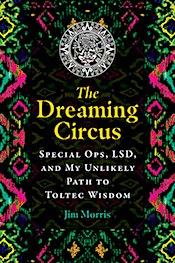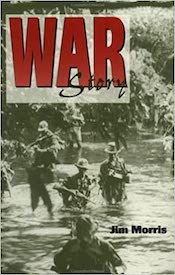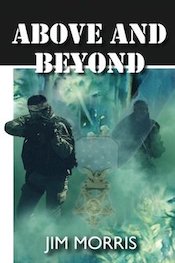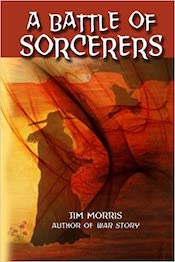WHY I WRITE ABOUT WAR
I’ve been asked the question, why do you write about war?
It’s a fair question. Most Americans today have little personal experience of war; perhaps my concern with it seems strange to them. The answer is that I write about war because war is what I know.
I was born in 1937, and one of my earliest memories is of President Roosevelt’s speech announcing Pearl Harbor. At four I missed most of the significance of it, but my mother was scared, and I got that. It was something I had never seen before. And she had reason to be scared. Within two years my brand new stepdad was dead. In those two years he had enlisted, gone through navigator cadet training, deployed to England, and been promoted three times. He was shot down bombing Hamburg. When he died he was twenty-three years old, and had been a major for three days. Promotions were fast in the Army Air Corps, because colonels were going down as often as everybody else.
Nobody younger than I am remembers what America was like during World War Two. The entire country was committed to the war. Everybody worked in defense. No houses were built, no cars were built. The nationwide speed limit was 35 miles per hour, to save gas for the armed forces. Once, visiting my dad, my kid sister Shirley fell out of the car on the highway. We just stopped, went back, picked her up, dusted her off, and drove on.
Older people were plowing their savings into war bonds, and kids saved their pennies to buy books of stamps which could be turned in for war bonds when complete. There was no television, but there was the radio and the Movietone News, which ran with every film shown, and which followed the war obsessively. I saw the liberation of Buchenwald concentration camp after a showing of Bambi when I was eight. Those emaciated prisoners, and stacks of dead Jews still haunt my dreams. I wanted to be one of the guys who saved people like that.
Right under the headline in every paper was a battle map. Nobody took it for granted that we would win. We were afraid of an invasion. Women were afraid of being raped by Japanese soldiers. Old guys with glasses thought they might have to get the old .22 out of the back of the closet and try to get a German before they went down.
The Iraq War was horrible. But casualties from Vietnam were roughly fifteen times what they were in Iraq. And I have been to an American cemetery in the Philippines with more dead from the American invasion of the islands than we lost in Vietnam, one campaign of dozens, worse than all of Vietnam, Vietnam worse than fifteen Iraqs.
World War Two was serious business. Almost every home had a flag with a silver star on it in the window, to designate that they had a son or husband in the service. Many of them had gold stars; they had a DEAD son in the service.
It ended when I was eight. I had no idea we were even trying to end it. I just thought it was what we did. What now, I wondered? Then I got it. Get ready for the next one.
When I was eleven the USSR exploded its first nuclear device. I thought, one of these days we’re going to war with those people, and I better get ready.
Not a problem, I was already getting ready. With no dad, my mom thought I needed a male influence, so I was in military school. It was the first school I went to for two years, so it was the first school where I made friends. There were no day care facilities in those days, so it was also the first time I got to play outdoors after school. To me the military meant friendship and freedom. Being a civilian meant being the new kid during the school day and locked up in a house the rest of the day. Not a complaint, just a fact.
There was a draft in those days, so I was going to serve anyway. I took ROTC in college and aspired to join Special Forces, the hottest thing in the military. And, you know what, Special Forces was the most fun I’d ever had. I loved it. It was the childhood I had been denied.
The Vietnam War means something entirely different to me and my colleagues than it seems to mean to the rest of the country. The people I worked with there, the mountain tribes, are the most oppressed people I have ever encountered. There is a mutual hatred between them and the Vietnamese that transcends any racial animosity experienced by any American of any race.
Once, one of our montagnard company commanders, also the adopted son of our communications sergeant, came in to report that a Vietnamese soldier guarding a bridge had shot and killed his mother. The bridge guard was bored, and he started plinking at the heels of this old lady walking across a rice field. She ran, and he picked her off as she climbed the stairs to go into her house.
Outraged, we went to the province chief, a Vietnamese major. His response, “What do you want me to do about it? It’s just another savage.”
But as long as the montagnards were working for us they had a measure of protection from stuff like that. Also, the tribe we worked with had the highest incidence of leprosy in the world. So we built a village for the lepers. I was project officer on that, maybe the best thing I’ve ever done.
Things have not fared so well for the montagnards since we left. Their numbers have been cut in more than half while the Vietnamese population has swelled by a factor of three. The Vietnamese have killed a lot of them, but we bear responsibility because half their young men of military age were killed fighting for the Americans. I knew those people well, and I know what they fought for. They fought for freedom, and they did not get it because we abandoned them.
So, I wrote about that because it ate at my soul. And in the process I gained a reputation as a writer about war. I was invited to experience and write about another eight wars, and I accepted.
During the eighties the Soviet Union followed a strategy called the “War of National Liberation”, sponsoring revolutions throughout the world. But the only revolutions they sponsored were in places where success undermined the strategic position of the US, places where there were vital minerals, or places that were nearby, and posed a geographic threat.
Nobody seemed to get that all those revolutions were funded, armed, trained, and frequently led by the USSR. But I was there and saw the proof that nobody else published. It was the Third World War, and it was war in the Third World. We won it, and the Soviet Union collapsed.
When you devote your entire adult life to a cause and that cause prevails you get to feel good about it.
But I won’t be writing about the so-called Global War on Terror. I’m too old to hump the boonies, I don’t care much about generals or grand strategy; I care about soldiers. So, the plan now is to turn my attention to the post-war problems of soldiers. I have surmounted those by the acquisition of a spiritual life, and I want to write about the spiritual life as it relates to soldiers.
I ain’t gonna study war no more.




